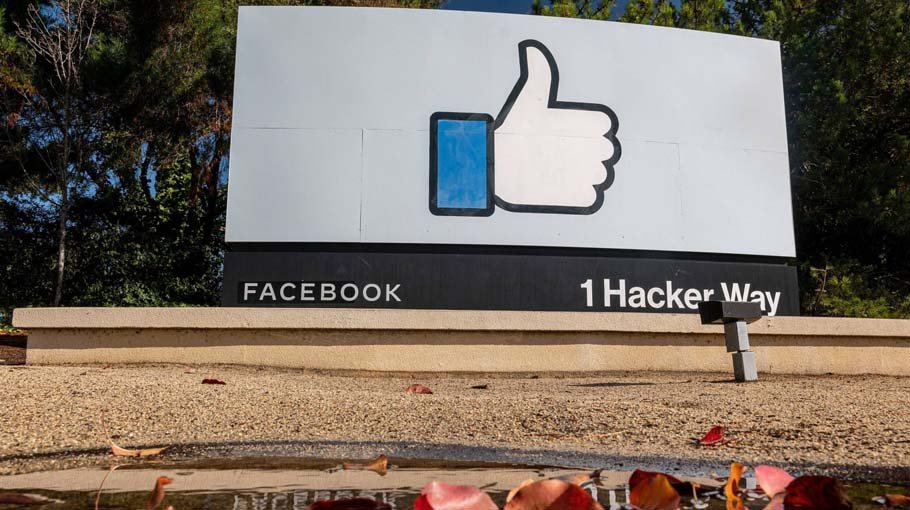UK’s Facebook-Giphy smackdown is an omen for big tech

For years, Facebook and other large technology companies grew into vast digital conglomerates by making so-called killer acquisitions, small deals for companies that could one day pose a competitive threat.
Internal emails between executives at Facebook show Chief Executive Officer Mark Zuckerberg and his executive team were quaking at their keyboards in 2012 as they watched WhatsApp grow to dominate the market for messaging apps and “become the biggest threat we’ve ever faced.” Two years later, Zuckerberg swooped in with a $19 billion offer that was too good for WhatsApp’s founders to refuse.
But those days are done. Even acquisitions of smaller companies, including Facebook’s $315 million purchase of Giphy, a GIF search tool, in 2020, are now under threat of being unraveled. Just recently, the U.K.’s antitrust watchdog ordered Facebook’s newly branded parent Meta Platforms Inc. to sell Giphy, marking the first time a global regulator has forced a large technology company to reverse a completed deal. Facebook has said it will appeal the decision.
Like toddlers suddenly realizing their parents mean
business, big tech companies will take note of what
happened to Meta and Giphy and pull on the reins
Read More: G20 needs to achieve consensus
On its face, it looks as if the U.K. is overreaching on a big old nothingburger. Neither company is based on British soil, and really, who cares about GIFs?
But Facebook is the world’s biggest social media company and Giphy is the world’s biggest provider of GIFs. Inane as they can be, GIFs have become the social fuel of platforms like Facebook, WhatsApp, Slack Technologies and Twitter Inc. and a critical part of the digital vocabulary of younger consumers. Bear in mind that no one truly knew how big Instagram was going to get when Facebook bought it for $1 billion in 2012. The U.K. agency said it was killing the deal because in the future it could “harm social media users and U.K. advertisers.” That marks a big shift in how it scrutinizes tech deals. The U.K. Competition and Markets Authority, or CMA, revamped the way it assessed digital deals earlier this year, and in two key ways:
It would start looking at how competition could be warped in the future, not just in the past. This meant, for instance, that the regulator spent more time looking at Giphy’s future plans for display advertising than it otherwise would have. It shouldn’t err on the side of clearing a merger if there was uncertainty around how big a digital company could become.
Why the change? The previous guidelines were 10 years old and in desperate need of updating. Several independent reviews and academic studies, including a landmark 2019 report by Harvard University economist Jason Furman for the U.K. government, found chronic under-enforcement by antitrust regulators. In the 10 years to 2018, for instance, the world’s five biggest tech companies had made more than 400 acquisitions, with few scrutinized and none blocked, according to Furman’s study. Tech companies were moving too quickly and antitrust authorities were dithering.
So the CMA hired an external economic consultancy to review acquisitions it had waved through itself, like Google’s purchase of the navigation app Waze for $1 billion in 2013 and Facebook’s acquisition of Instagram in 2012. The agency, it found, was being too narrow in how it assessed tech deals.
The CMA’s latest order marks an important step toward reining in killer acquisitions that large technology companies have used to assert their dominance, often to the detriment of startups trying to scale up. Theoretically, if personal data is an asset class, Facebook should never have been allowed to acquire WhatsApp and Instagram. Not only did it mean that a single outage could knock out multiple communications tools for billions of people, as happened in October, it gave Facebook much greater ad-targeting power compared with its rivals.
The order should sound the alarm inside the M&A teams of large tech companies. Nvidia Corp.’s acquisition of Arm Holdings looks a little more precarious thanks to being scrutinized by U.K. regulators, who are talking to the U.S. Federal Trade Commission “literally ever week” about the deal, as Bloomberg News reported recently.
US authorities have said they, too, are taking a much closer look at smaller tech deals. And anyone who believes Twitter is suddenly in play because of CEO Jack Dorsey’s departure should probably think twice.
It’s telling that Meta’s high-profile digital currency chief, David Marcus, stepped down from his role Tuesday after the departures of multiple senior executives from the project formerly known as Libra.
Governments already bristled at the prospect of Facebook competing with sovereign currencies when the project was announced in 2019, and Facebook likely anticipates that pushback from governments will be even stronger now.
After all, a regulator’s ultimate power isn’t in the actions it takes on deals but the deals that never get done because of the threat it poses.
Regulators consider every case on its own merits, but the U.K.’s new way of looking at how a deal can affect future markets shows they are starting to get out in front of tech companies that, until now, have been too fast to regulate effectively. Like toddlers suddenly realizing their parents mean business, big tech companies will take note of what happened to Meta and Giphy and pull on the reins.
Parmy Olson is a Bloomberg Opinion columnist covering technology.
Source: Bloomberg



